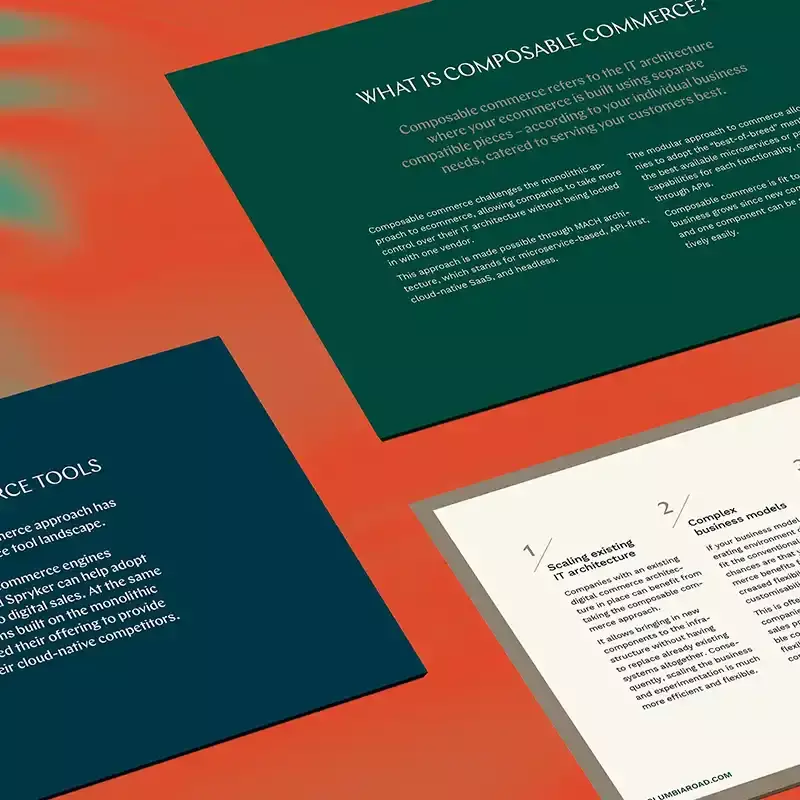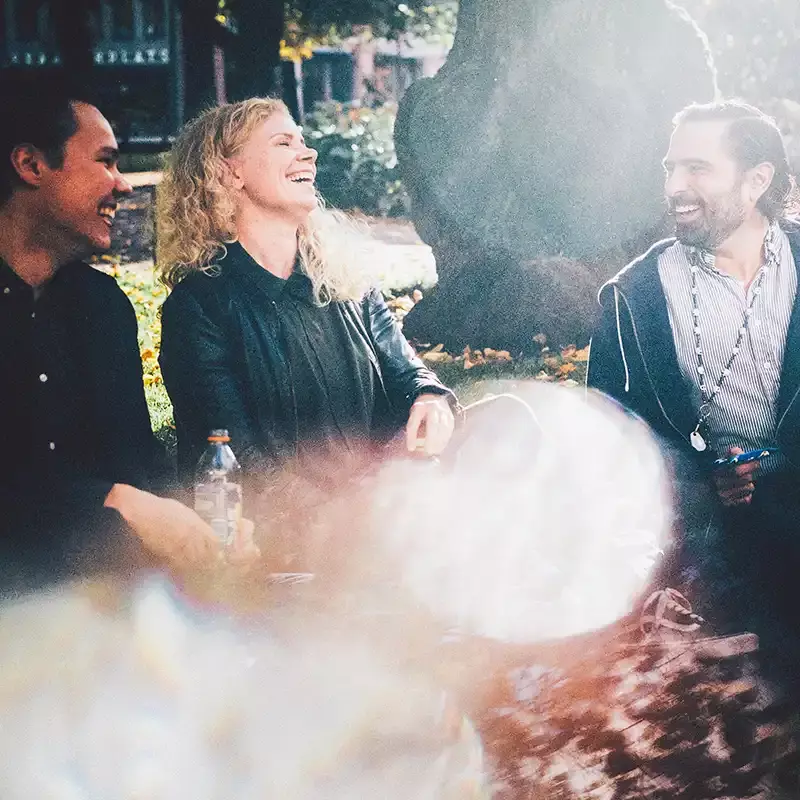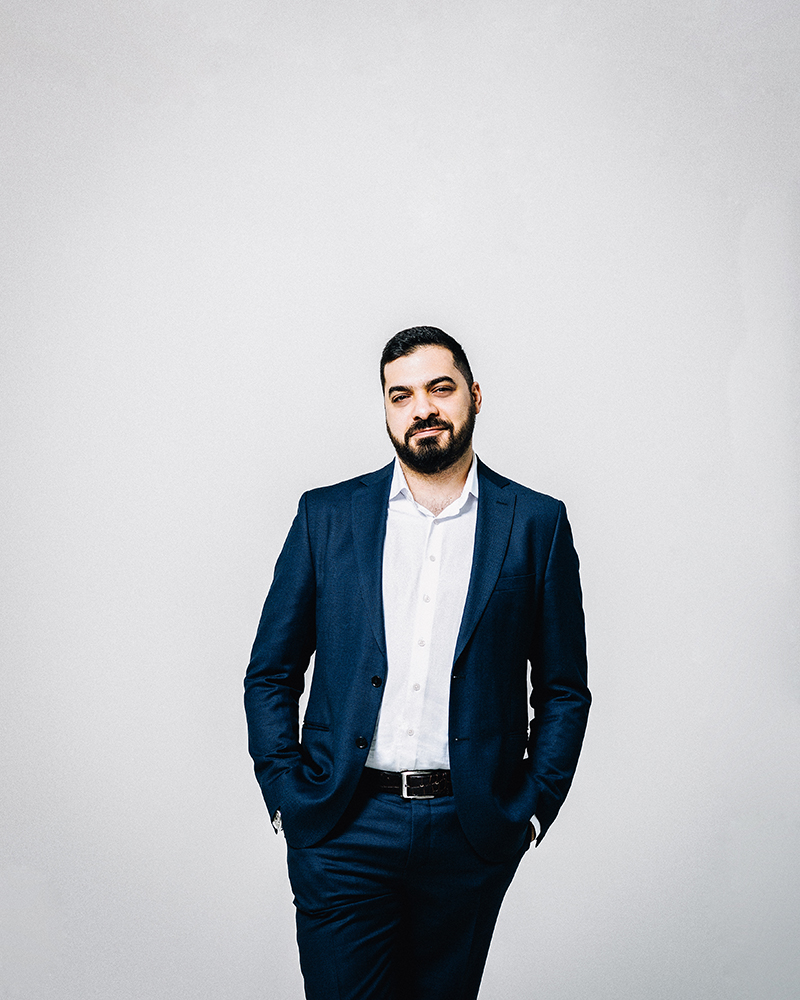The Data Handbook
How to use data to improve your customer journey and get better business outcomes in digital sales. Interviews, use cases, and deep-dives.
Get the bookIn my career, I've learned a thing or two – sometimes best through tough challenges. Now I get to give back to others as a mentor. Here is my list of 10 lessons that have helped me grow.
Throughout my career I’ve tried a lot of different things, from joining start-ups and building teams, products and companies to working as a freelance consultant. The opportunity to explore different perspectives on how to handle sales, customer acquisition, crisis management, customer relationships and support has come in handy since I joined Columbia Road in 2021, and the lessons learned from these past experiences have led to me taking on a mentorship role.
I’m currently leading our Care unit, where I work with a team of around 12–15 people to help them provide the best possible service and care to our clients. I love helping people because it feels like I’m playing a positive part in their career progression – it’s fascinating to see that connection where a lesson I’ve learned through my own experience can make their lives easier by preparing them for what lies ahead. Obviously the support I give varies widely depending on the specific challenge the person is facing, but I’d like to share some things I’ve learned through my diverse working life that often prove valuable to my mentees.
1. It’s okay to slow down
In my first start-up job we were so keen that we burned the candle at both ends, but we were eventually hit by burnout, mental health issues and exhaustion. If you find yourself in a similar position, my advice is to just slow down and take it easy – you’re not doing heart surgery here! Your longevity is more important than the immediate results.
2. It’s always essential to plan for the next steps
I was once recruited by another start-up to fix a customer-facing product that was used by thousands of people. Unfortunately, the company didn’t do much research on what the product should be, and they didn’t have any budget to figure it out. In fact, we didn’t even have a budget to figure out what kind of product we had in the first place, which meant we didn’t know which direction to go in. In order to plan ahead, you need to know two things: where you are and where your customers are right now.
3. Most challenges we face boil down to communication
I love solving problems at work, especially human ones. Most of the time, they come down to communication, from poor expectation management to the lack of an agreed working procedure. The best way to deal with a situation is always to be honest about what you can and can’t achieve and begin the conversation from there. I always love that “Aha!” moment when the misunderstanding is uncovered – it’s like finding a loose thread, from which you can unravel the mess and find a solution. Tackling technical issues is a big part of our work of course, but most problems arise from poor communication.
4. Finding people’s hidden talents adds value
One of the CEOs I worked with taught me a lot about how to get the best out of people, and one of the things I learned from him was how to uncover and make use of their hidden skills. He always saw the best in everyone, believing that no one was inherently bad at their job and that he could get more out of people by making effective use of the right skills – some people don’t even know what they are good at until someone else points it out to them. That was fascinating to witness.
5. Tough times make us stronger
I learned a lot from my challenging days as a freelancer, like how to support myself independently and deal with disappointments like contracts getting cancelled. It’s easy to take things personally, but I realised that sometimes the world is just weird. Though times are amazing opportunities for learning. Take a step back and examine what went wrong so you can apply your learnings next time.
6. The best tech isn’t always cutting edge
The users of an educational service provider I once worked for didn’t have access to the latest phones or PCs as they mostly lived in developing countries. This meant that we had to use stable legacy technologies so that they could access the content. That taught me a pivotal lesson on the importance of focusing on delivering value over using the latest, shiniest tech which won’t necessarily serve users.
7. It’s important to let go and trust others
The Care unit at Columbia Road is one of the biggest teams I’ve worked in, and I’ve learned to trust people to work effectively despite not having the same visibility over their output as I had when working at start-ups. You can’t go around worrying that something will go wrong, so you have to trust people. People are at the core of Columbia Road's culture and we’re shown trust right from day one, so I have that reassurance that our hiring process always uncovers talented, reliable individuals.
8. Setting targets keeps work interesting for me
Being into so many different things, I’ve never quite known where to focus my energy. Recently though, my mentor at Columbia Road (yes, even as a mentor I’m a mentee too – learning never stops!) helped me draw up a plan, identifying what I need to learn and do to achieve my ambitions. Having goals to focus on is exciting and keeps me interested.
9. Mentoring can take many different forms
I support a lot of people in my daily work, whether mentoring through a formal arrangement or responding to ad-hoc requests for assistance. Some of my mentees come to see me regularly; others I’ve never met in person and we only communicate by email. As well as fellow Roadies, I also advise people back home in Turkey who are considering moving to Europe or looking to take their next career step. It’s nice to know that thanks to my experience I can advise others on many aspects of managing their work, careers and businesses.
10. It’s all about the mentee, not the mentor
I’ve found that the most important thing as a mentor is taking myself out of the equation. If you like the idea of mentoring, remember that you’re there to help your mentee take that leap, not to force them or do it yourself. Afterwards, your job is to support them with the next step, either by applying your own understanding or finding someone with the experience to guide them further.
The Data Handbook
How to use data to improve your customer journey and get better business outcomes in digital sales. Interviews, use cases, and deep-dives.
Get the book




